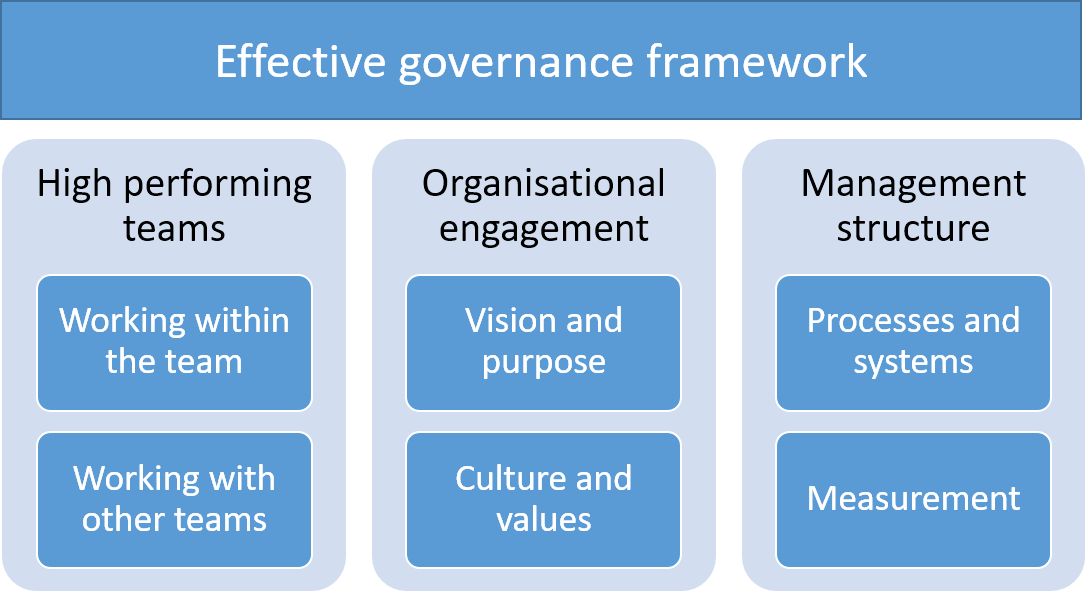One of today’s major challenges
Implementing a governance framework that is not just an overhead but delivers value
- What sort of governance is right for your organisation / purpose?
- Which factors does the framework need to include and how should they be weighted for your organisation?
- How should the governance framework be introduced and set up?
- What are the most common problems?
- How can you be sure it is delivering value?
Berkshire viewpoint
Most governance frameworks have been designed to satisfy the requirements of others, such as regulators and the investor community. These are important but this approach can lead to a compliance-led mentality. Of course it is important to avert disaster through good risk management and prevent fraud or malfeasance, but massive value can still be lost to organisations and their stakeholders through the poor stewardship of an ineffective board, evidenced in bad decision-making, inability to implement programmes effectively and general inefficiency. Moreover, despite the increasing amount of regulation, we still see spectacular falls from grace by companies previously held up as paragons of good governance. Meanwhile the focus on the negative aspects of governance and simplistic measures of board effectiveness in large companies has obscured the potential positive opportunities for all sizes and types of organisation to introduce more effective governance to the benefit of all stakeholders. Here we give some observations and suggestions based on our experience.
• It is dangerous to assume governance is the preserve solely of the Board (whether directors, governors or trustees); organisational culture and individual behaviours are at least as important as the information and control systems
• All organisations, not just listed companies, should work out what sort of governance they require not just to preserve and safeguard their assets, but also to deliver value successfully
• There will often be compliance requirements you have to fulfil: so how can you use such activity to deliver value for the organisation?
• How will any framework be implemented? And how will you know when it is working effectively? We argue for a systemic approach that recognises the complexity of organisational governance in practice.
• Finally, the governance framework cannot be static – it needs to evolve to reflect the changing business and its evolving priorities.
How Berkshire Consultancy can help
Our approach to effective governance is built around the three core enabling elements, in a programme designed with you to address your particular needs and tackle your real priorities. It starts by determining what you want from governance. There are a number of tensions where you need to strike a balance – the point you choose will depend on your aspirations and major challenges, strategy, attitude to risk, accountability to others and relationship to the communities around you.
Much may depend on your organisation structure and culture, the way the Board and the Management Team work together What sort of team relationship is appropriate between executives and external / independent Board members? What are the behaviours and processes that will support the governance framework? What metrics will enable a realistic picture of its effectiveness to emerge? Surely the number of meetings held is not an adequate measure of effectiveness!
The combined expertise across Berkshire’s key services – People Development, Organisational Development and Programme Delivery – means we can help you tackle specific areas of need or take a more integrated approach to your overall governance framework, This approach is not restricted to listed companies but can be applied to all sorts of situations, organisational structures and relationships, including joint ventures and complex contracts.


